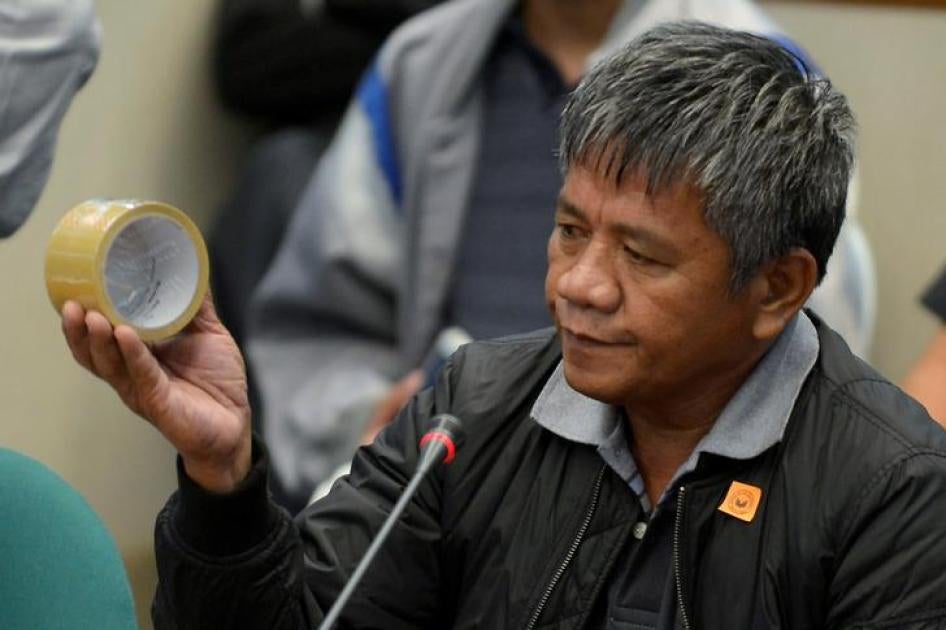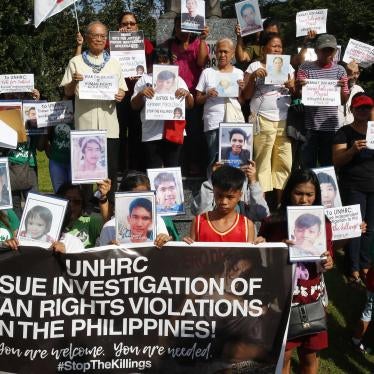(New York) – The Philippine government should invite an independent investigation involving the United Nations into allegations of direct involvement by President Rodrigo Duterte in extrajudicial killings, Human Rights Watch said today. On September 15, 2016, an admitted former “hit man,” Edgar Matobato, testified at a Philippine Senate hearing about the alleged killings of about 1,000 people in Davao City involving Duterte, who was the city’s mayor for more than two decades.
“The detailed testimony from a ‘death squad’ member that then-Mayor Duterte was personally involved in killings and ordered others are very serious allegations that require an independent investigation,” said Brad Adams, Asia director at Human Rights Watch. “President Duterte can’t be expected to investigate himself, so it is crucial that the United Nations is called in to lead such an effort. Otherwise, Filipinos may never know if the president was directly responsible for extrajudicial killings.”
Matobato, a member of the Davao City “death squad” from 1988 to 2003, said he himself killed about 50 people under direct orders from then-Mayor Duterte. “Our job was to kill criminals, rapists, [drug] pushers and snatchers,” Matobato testified. “We killed people almost on a daily basis.” He also described witnessing Duterte “[empty] two Uzi magazines” on a National Bureau of Investigation official in 1993.
Since Duterte took office on June 30, more than 2,000 people have been killed in his self-proclaimed “war on drugs.” The most recent Philippine National Police data shows that from July 1 to September 4, police killed an estimated 1,011 suspected “drug pushers and users,” more than 14 times the 68 such police killings recorded between January 1 and June 15. Police blame the killings on suspects who “resisted arrest and shot at police officers,” but refuse to launch an investigation into the deaths.
In 2009, Human Rights Watch published “‘You Can Die Any Time’: Death Squad Killings in Mindanao,” which details the involvement of police and local government officials in targeted death squad killings in Davao City during Duterte’s time as mayor. Another Human Rights Watch report from 2014, “‘One Shot to the Head’: Death Squad Killings in Tagum City, Philippines,” documents police involvement in what appeared to be a copycat policy of extrajudicial killings in a city close to Davao City.








